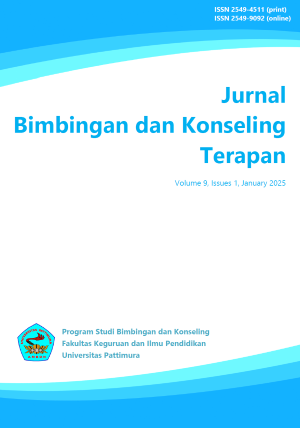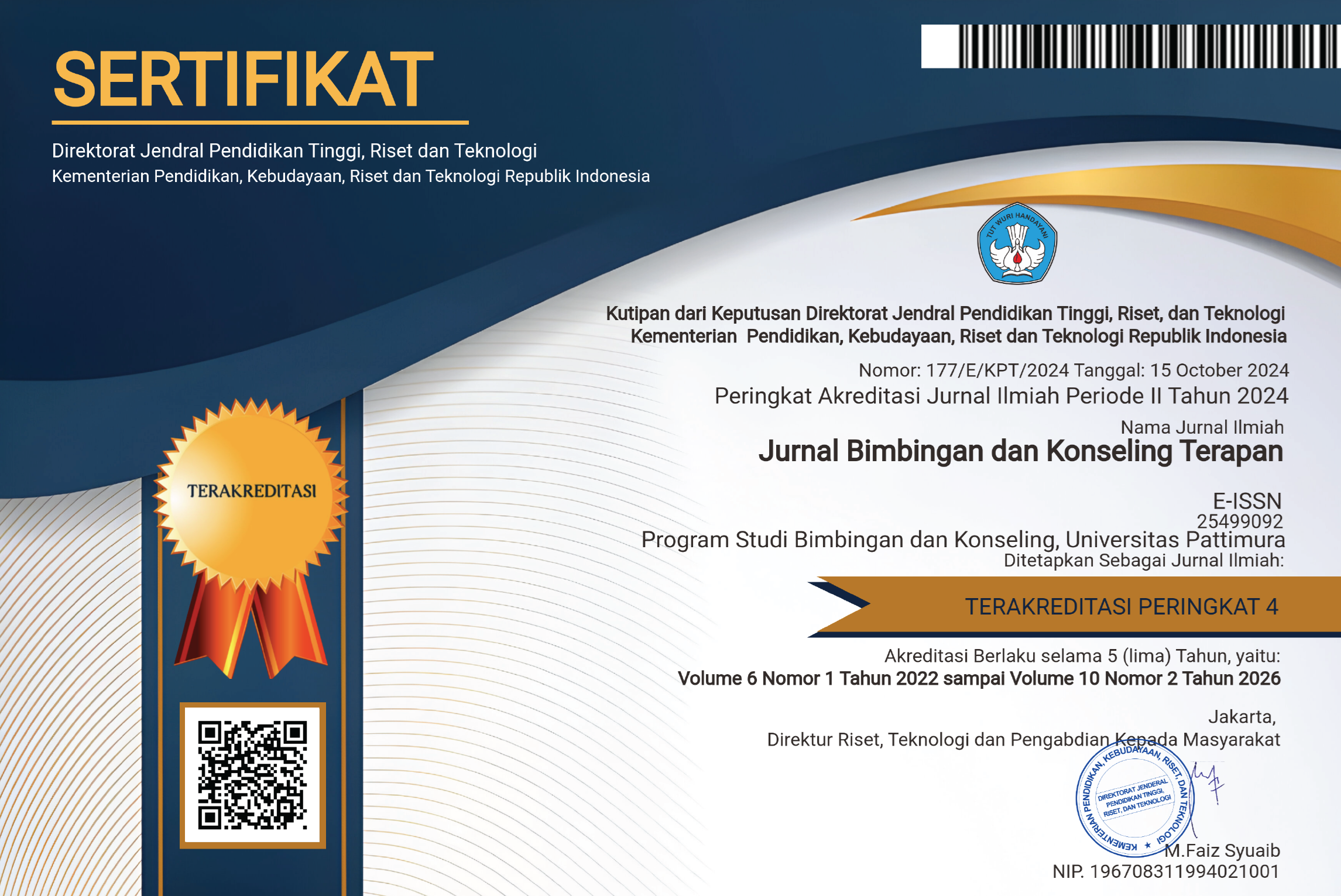The Role of Psychological Well-Being and Self-Compassion in Mitigating Quarter Life Crisis Among College Students: Implications for Guidance and Counseling
Abstract
This study explores the relationship between psychological well-being, self-compassion, and the experience of quarter life crisis (QLC) among students in the Department of Guidance and Counselling at the State University of Malang (classes of 2020 to 2023). QLC is a period of anxiety and uncertainty commonly faced by individuals transitioning into early adulthood, marked by fear of the future and indecision. The research aims to determine how psychological well-being and self-compassion can reduce the effects of QLC in university students. Using a correlational design, the study sampled 86 students, selected through proportionate stratified random sampling. The Psychological Well-Being Scale, Self-Compassion Scale, and Quarter Life Crisis Scale were used for data collection. Analysis showed that both psychological well-being and self-compassion had a significant negative impact on QLC. Higher levels of psychological well-being and self-compassion were linked to lower QLC levels, with psychological well-being contributing 53.8% and self-compassion contributing 49.1%. Together, these variables explained 59.8% of the variation in QLC. The findings highlight the need to promote psychological well-being and self-compassion in education to help students cope with QLC. Guidance and counselling programmes can focus on these areas to support students' emotional resilience, self-acceptance, and decision-making. This research adds to the understanding of protective factors against QLC, suggesting further exploration of additional variables and different student populations.












